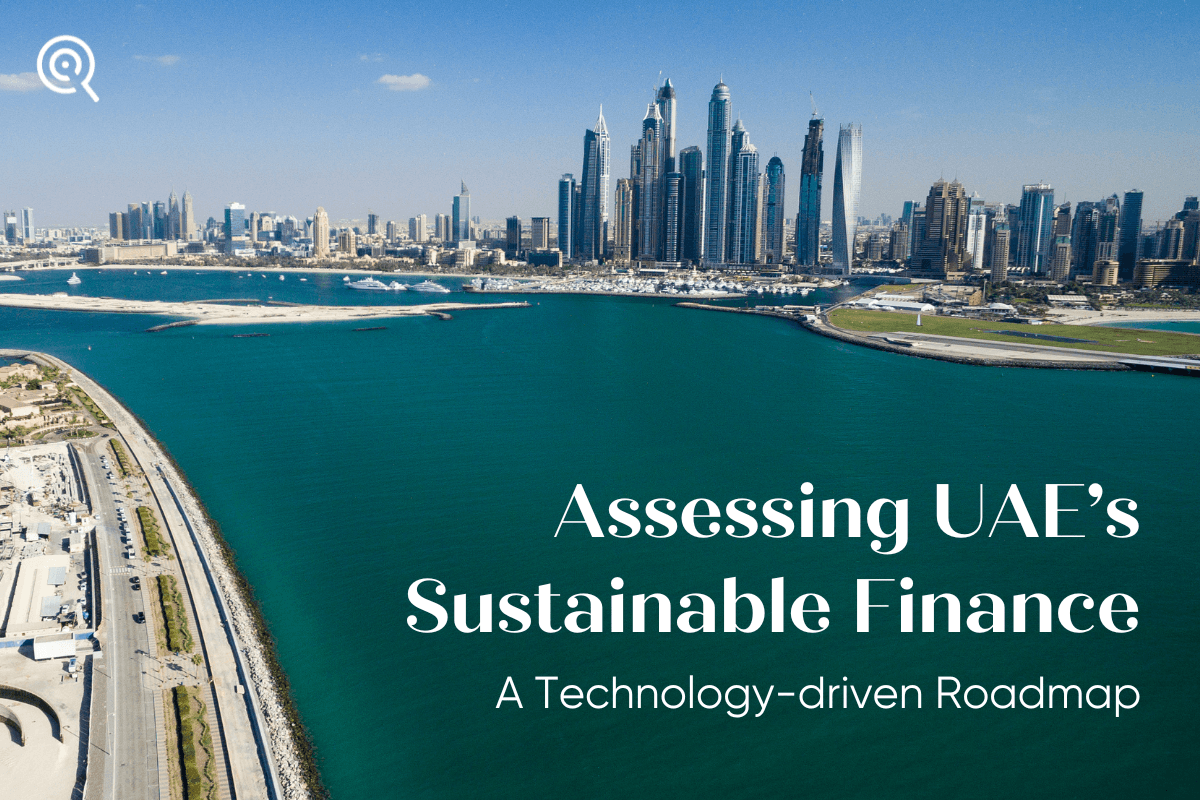
Growth of Fintech in UAE
While the UAE’s economy has been primarily accelerated by oil exports, the rise of cutting-edge technology and strong banking services such as Embedded finance and blockchain-based payment systems in recent years has enabled the UAE to establish itself as an emerging global financial hub. Currently, the UAE is rated very highly among the fintech centres in the world. More than 134 fintech companies with over 2000 employees operate in the country. The United Arab Emirates' call for technology is rooted in the UAE’s National Vision 2021 to "transition to a knowledge-based economy” and to “become among the best in the world in entrepreneurship.” The UAE has appointed ministers of advanced sciences and artificial intelligence, established tech-focused organizations like Smart Dubai, the Abu Dhabi Digital Authority, and the Dubai Future Foundation, and started programs like Hub71 and Area 2071 to aid entrepreneurs in various technology-related verticals. 
UAE Government Exploring Sustainable Initiatives
With a rise in Fintech companies, the government of the UAE is also keen on launching Sustainable Finance initiatives to complement an equitable economy. The UAE government is committed to the United Nations’ Sustainable Development Goals (UN SDGs), a set of 17 interconnected goals intended to advance sustainable development in various environmental, economic, and social facets. UAE’s legislators want to “Leave no one behind”, moving towards a more resilient and environment-friendly path during the official enactment of the UN SDGs. The UAE Ministry of Climate Change and Environment’s Sustainable Finance Framework 2021-2031 shows a multi-pronged approach towards sustainable finance, including enhancing the supply and demand for sustainable finance products, strengthening the enabling environment for climate and green investments, and lastly, promoting stakeholder collaboration.
Embedded Finance via Banking as a Service (BaaS)

The Fintech ecosystem is expanding with the economy’s advancement in the digital sphere, opening up hitherto undiscovered prospects that will aid regional businesses in revolution, integration, and future acceleration. Embedded finance refers to the integration of traditional financial services into non-financial services companies’ buying experiences. It is anticipated that Embedded Finance or Banking as a Service (BaaS) will act as a disruption and become a “must-have” in the consumer’s online experience, allowing major corporations to easily transform into Fintech companies. According to the Gulf News Survey in the UAE, over 83% of consumers wish to shift to brands offering “buy now pay later” services. Diverse opportunities are being produced by embedded finance's rapid expansion. To maximize advantages, a range of stakeholders have been joining the market, including traditional financial institutions (FIs), non-financial companies, business owners, Fintechs, and investors. Embedded finance has provided conventional FIs with the chance to increase infrastructure efficiency and scale economies. Now that technology is treated as a "commodity," banks can only differentiate themselves by utilizing their tech stack more effectively. By giving others in the market access to plug-and-play technologies and expanding their clientele, BaaS assisted the banks in diversifying their sources of income. According to research, banks that offer BaaS solutions are 2 to 3 times more profitable than traditional banks. Considering the wall of client expectations and the velocity of change, both financial and non-financial companies need to incorporate financial services products at a rapid pace. A smooth transition can be accomplished by either developing internal skills or partnering with Fintech firms and other ecosystem actors. However, while the transition is in progress, business continuity cannot be compromised. This might be difficult due to technological know-how and staff capacity restrictions. The transition differs by industry, where banks and other established players frequently have legacy IT systems that make adopting new technology difficult. Despite this incumbency, disruptive technologies are readily driving embedded finance and the ideas that support it are BaaS, Open APIs, data analytics, and so on. Fintech investment has doubled in the past year, and reports by the UAE government propose that Venture Capitalist funding for Fintech companies in the region will reach US$2.5 billion by the end of 2022.
Sustainability led by Technology and Investments

With an evolving Fintech sector and massive interest by Middle Eastern countries towards sustainability, there is a significant role and impact that technology, led by appropriate tech resources, has to play. Today, investors are keen on funding companies with a technology vision in terms of future sustainability models. Thus, embedded finance dominates banking because it offers huge returns to institutions that can embed their offers across a wide range of consumer situations. Furthermore, it is not a zero-sum game. There is ample room for all providers to coexist, including incumbents, challengers, and neobanks. This is especially true in developing economies and underdeveloped markets. Partnerships between financial institutions and fintech are mutually beneficial. For banks, an open-banking solution that uses new technology can help them reach more customers, reach more markets, and make more money. Fintechs, on the other hand, can improve their services by working with banks and getting access to their systems through open banking APIs. An API marketplace, which includes an API manager, gateway, security, publisher, and developer, helps bring together financial institutions and fintechs. Neobanks such as Wio, Yap and Zand Bank have gained ground since they began providing digital banking services in the UAE. Inevitably, the stress on technological advances in the UAE’s financial market to create a sustainable ecosystem has gained ground. Proper utilization of technical resources and capitalizing on the abilities of tech geniuses can lead the way. Creating a tech-first ecosystem that is beneficial across businesses requires directed efforts, and the UAE government, with its recent initiatives and endeavours, is making considerable headway.
Authored by Nishka Agrawal
For more information, please reach out to the Marketing Team.


